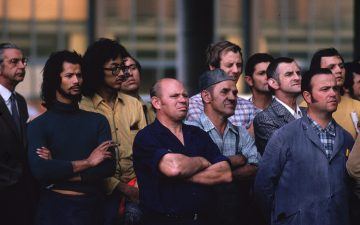 Jonathan Hopkin in Aeon:
Jonathan Hopkin in Aeon:
With the end of the Second World War, the economies of western Europe and North America began a period of spectacular growth. Between 1950 and 1973 GDP doubled or more. This prosperity was broadly shared, with consistent growth in living standards for rich and poor alike and the emergence of a broad middle class. The French call it les trente glorieuses – the 30 glorious years – while the Italians describe it as il miracolo economico. The story of how this golden age of shared economic growth came to be has almost been forgotten, despite it being less than a century ago. There has never been a more urgent time to remind ourselves.
How did western countries, in one quarter of the 20th century, manage to increase both equality and economic efficiency? Why did this virtuous combination ultimately fall apart by the end of the century? The answer lies in the awkward relationship between democracy and capitalism, the former founded on equal political rights, the latter tending to accentuate differences between citizens based on talent, luck or inherited advantage. Democracy has the potential to curb capitalism’s inherent tendency to generate inequality. This very inequality can undermine the ability of democratic institutions to ensure that the economy works for the majority.
The rise and fall of democratic capitalism in the postwar era is one of the most important events in modern history.
More here.
